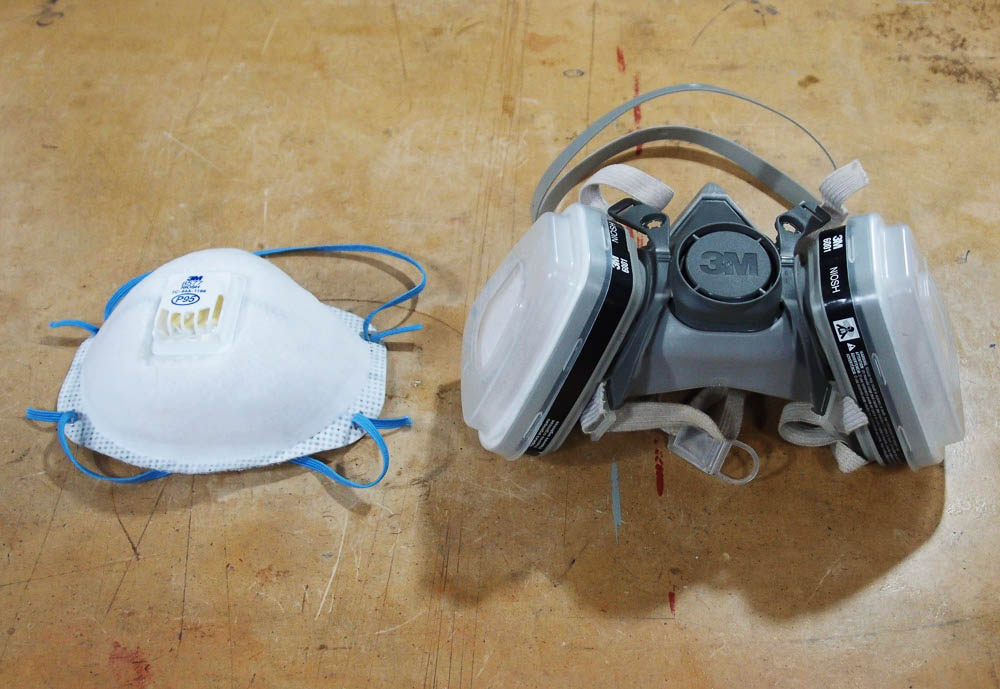I've taught classes at the university level, but not any shop or woodworking classes. I did work as an engineer, including a lot of shop work, for about 10 years after I got my degree.
I have written a number of stories for woodworking magazines though.
Eye protection: If you wear glasses, I wouldn't worry about it with most hand tools unless there's impact (hammering, etc.) involved. As soon as you step into power tools, you should wear eye protection. Even a pair of prescription eyeglasses provides an order of magnitude more protection than not using anything.
Hearing protection: Power tools mostly. Hand tools generally don't make excessive noise, but I can see where a long day of driving nails with a hammer could get to you. Or blacksmithing

Respirators and breathing filters: If you are using a power sander and it's not connected to an effective dust containment system, you should wear a filtering mask of some sort. N95 would work well. Dust from a power sander is very fine and will loft into the air easily. You can tell that you are breathing it. Because it is fine, it will penetrate deeply into the lungs - not the best for long term lung health.
If you are brush painting using solvent-based (non-aqueous) paints, use a respirator unless you are outdoors with good circulation. I have a 3M respirator that I use for indoor painting and finishing, and it's comfortable to wear. With its activated charcoal filer plus particle filtration, it's very effective. If you are using a paint sprayer even with water-based paints, use a respirator. Sprayers fog the air and you don't want to breath it no matter how benign the substance is.
Here are two of the breathing filters that I use...

The left mask is a 3M #8577 P95. It filters oil particles as well as having the same dust filtration as an N95. The exhaust valve on the front helps keep glasses from fogging and makes breathing easier. Because it traps oil particles, it will serve for modest brush-on oil-based finishing needs.
The one on the right is my 3M respirator that has replaceable carbon filters plus particle filters. I use this for serious painting with my sprayer or for large brushed work with solvent or oil finishes in the shop. Breathing effort is easy, and glasses won't easily fog.



